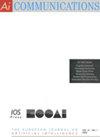开放世界物体检测:基于重新选择机制和特征分解的解决方案
IF 1
4区 计算机科学
Q4 COMPUTER SCIENCE, ARTIFICIAL INTELLIGENCE
引用次数: 0
摘要
传统的物体检测算法是在一个封闭的集合中运行的,训练数据可能无法涵盖现实世界中的所有物体。因此,开放世界物体检测问题引起了广泛关注。开放世界物体检测面临两大挑战:"忽略未知物体 "和 "将未知物体误分类为已知物体"。在我们的研究中,我们利用区域建议网络(RPN)的输出来识别潜在的未知物体,这些潜在的未知物体具有较高的物体分数,与地面实况注释不重叠,从而解决了这些难题。我们引入了重新选择机制,将未知物体从背景中分离出来。随后,我们采用模拟退火算法来分离未知类和已知类的特征,从而指导检测器的学习过程。我们的方法在 U-mAP、U-recall 和 UDP 等多个评估指标上都有所改进,大大缓解了开放世界物体检测所面临的挑战。本文章由计算机程序翻译,如有差异,请以英文原文为准。
Open-world object detection: A solution based on reselection mechanism and feature disentanglement
Traditional object detection algorithms operate within a closed set, where the training data may not cover all real-world objects. Therefore, the issue of open-world object detection has attracted significant attention. Open-world object detection faces two major challenges: “neglecting unknown objects” and “misclassifying unknown objects as known ones.” In our study, we address these challenges by utilizing the Region Proposal Network (RPN) outputs to identify potential unknown objects with high object scores that do not overlap with ground truth annotations. We introduce the reselection mechanism, which separates unknown objects from the background. Subsequently, we employ the simulated annealing algorithm to disentangle features of unknown and known classes, guiding the detector’s learning process. Our method has improved on multiple evaluation metrics such as U-mAP, U-recall, and UDP, greatly alleviating the challenges faced by open world object detection.
求助全文
通过发布文献求助,成功后即可免费获取论文全文。
去求助
来源期刊

AI Communications
工程技术-计算机:人工智能
CiteScore
2.30
自引率
12.50%
发文量
34
审稿时长
4.5 months
期刊介绍:
AI Communications is a journal on artificial intelligence (AI) which has a close relationship to EurAI (European Association for Artificial Intelligence, formerly ECCAI). It covers the whole AI community: Scientific institutions as well as commercial and industrial companies.
AI Communications aims to enhance contacts and information exchange between AI researchers and developers, and to provide supranational information to those concerned with AI and advanced information processing. AI Communications publishes refereed articles concerning scientific and technical AI procedures, provided they are of sufficient interest to a large readership of both scientific and practical background. In addition it contains high-level background material, both at the technical level as well as the level of opinions, policies and news.
 求助内容:
求助内容: 应助结果提醒方式:
应助结果提醒方式:


